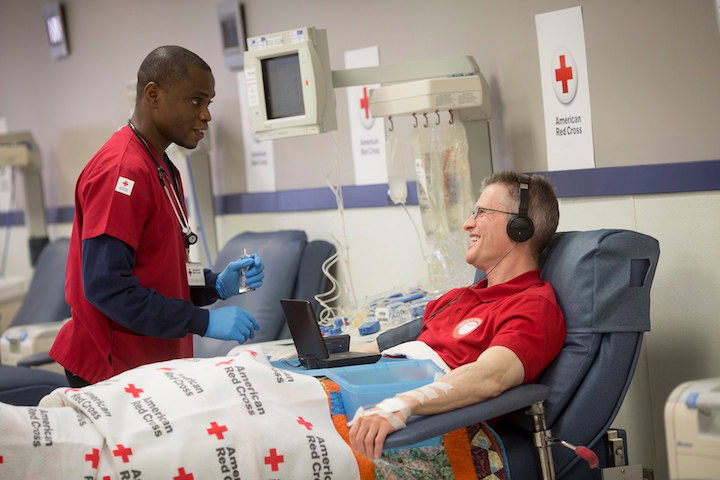American Red Cross Lifts Four-Decade-Old Blanket Ban On Gay Blood

American Red Cross, an organisation that is responsible for 40% of the US blood supply, dropped its four-decade-old blanket ban on gay blood donors.
This comes three months after the US FDA changed its rules, moving to individual risk-based assessment for prospective blood donors. The new rules focus on sexual behaviour, irrespective of gender identity or sexual orientation, allowing some gay men to donate blood.
Red Cross termed it a “historic move” and said that it was committed to the new inclusive blood donation process.
“Under this new donor screening process, all donors answer the same eligibility questions regardless of gender or sexual orientation and will be assessed for blood donation based on individual risk factors, not on sexual orientation. This change eliminates the FDA’s previous policy that deferred men who have sex with men from giving blood,” said the Red Cross in a statement.
Gay Blood Ban
The US FDA introduced the ban on gay blood in the 1980s during the HIV/AIDS epidemic.
A 2014 study by the Williams Institute, said that an additional 360,000 men would likely donate blood saving the lives of over a million people if the ban was lifted.
Over the past few years, other countries, including the United Kingdom, France, Germany, Israel, Greece, Brazil, Hungary, Argentina, Canada and Denmark have withdrawn the blanket ban on gay and bisexual men donating blood.
Australia Has Celibacy Rules For Gay Men
Australian gay blood donation campaigners have called on the TGA to follow the example of other countries that allow “gay men, and bisexual men and trans women who have sex with men, to donate whole blood without the requirement that we are celibate for three months.”
“We call on Australia’s blood authorities to follow the US and other countries by moving to individual risk assessment as quickly as possible,” Let Us Give spokesperson, Thomas Buxereau, said in a statement.
“When the plasma-only option was trialled in Canada, gay participants said they felt like second-class donors which is one of the reasons Canada abandoned plasma-only donation and moved to individual risk assessment for whole blood,” said Buxereau.






